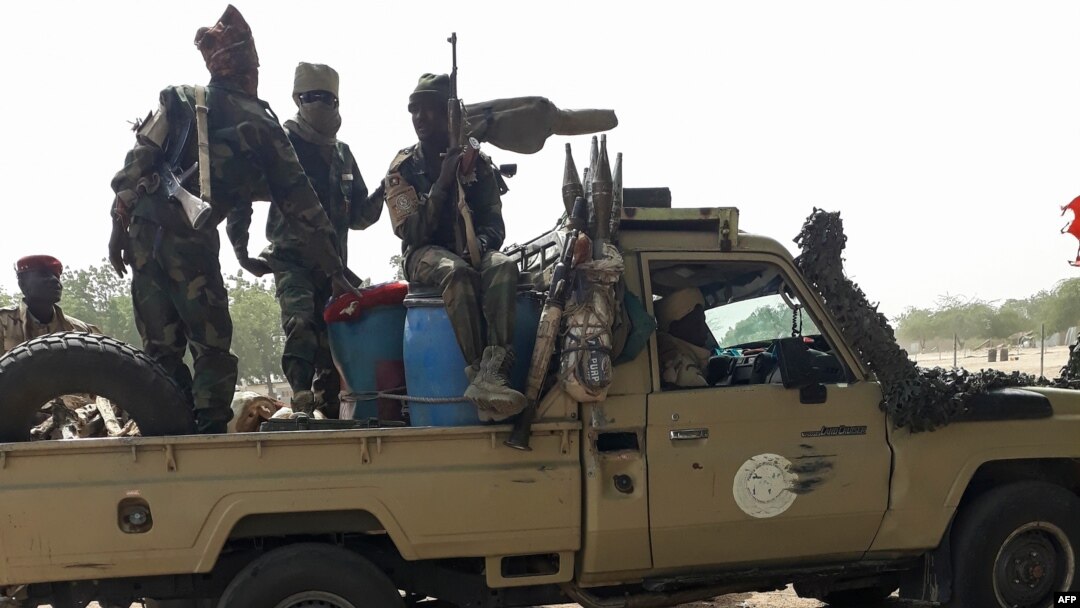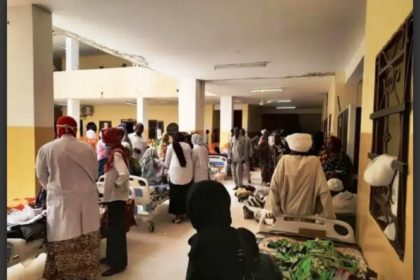By Adeyemi Adekunle
In yet another tragic escalation of violence, Boko Haram insurgents have killed at least 20 fishermen in Nigeria’s northeastern state of Borno. The attack, which took place in the serene fishing village of Gadan Gari, occurred on Wednesday at approximately 11:00 GMT, leaving a trail of anguish and fear among residents.
According to Modu Ari, a member of the civilian joint task force, the attackers arrived in a violent frenzy, targeting fishermen who were simply going about their daily activities. “They opened fire without mercy,” Ari stated. His harrowing account paints a grim picture of a community now devastated by one of the most brutal attacks in recent months.
Residents are reeling from the loss. Mustapha Kacahallah, a father mourning the loss of his child, said through tears, “We buried more than 15 people. It’s hard to comprehend why this happened.” The village, nestled near Lake Chad, had been a lifeline for its community, but it has now become a site of grief and despair.
Borno state, located in Nigeria’s northeastern corner, has borne the brunt of a 16-year-long insurgency led by Boko Haram and its splinter group, the Islamic State’s West Africa Province (ISWAP). This conflict, which initially started as an extremist movement against Western education, has spiraled into a full-blown humanitarian crisis, affecting millions. Tens of thousands of lives have been lost, with over two million people displaced, according to humanitarian agencies.
The militants have continued to wreak havoc, primarily targeting civilians in remote villages. These communities often lack the military presence necessary to deter or repel such attacks. The insurgency’s focus has shifted over the years, with the lake region now becoming a focal point due to its lucrative fishing industry. Fishermen and traders are frequently targeted, either as victims of violence or for extortion.
The attack on Gadan Gari is a stark reminder of the persistent insecurity that has gripped the region, undermining efforts to restore stability and normalcy.
As of Thursday, neither the Nigerian military nor Borno state officials had issued statements regarding the incident. This silence is a common occurrence, as authorities often delay addressing such attacks while grappling with the overwhelming scale of the insurgency.
Local civilian joint task forces, composed of volunteers and vigilantes, have been pivotal in providing security and intelligence in areas where the military’s presence is limited. However, their resources are stretched thin, leaving communities vulnerable to attacks like Wednesday’s. “We are doing all we can with what little we have,” Modu Ari explained, highlighting the dire need for better equipment and support to combat the insurgents effectively.
Experts have long pointed out that Nigeria’s fight against Boko Haram is not just a military one. The root causes of the insurgency—poverty, lack of education, and weak governance—must also be addressed. While the Nigerian government has made significant strides in reclaiming territory previously held by the militants, sporadic attacks like this underline the fragility of the situation.
The fishing industry in particular has been a double-edged sword for communities like Gadan Gari. While it provides economic sustenance, it also exposes them to exploitation and violence by insurgent groups who seek control over these resources.
As Gadan Gari buries its dead, the community joins countless others in northeastern Nigeria in calling for urgent action. Residents are appealing for increased security and attention to their plight, which they feel has been overshadowed by other national issues.
“This attack should be a wake-up call,” said an elder in the village who wished to remain anonymous. “How many more lives must we lose before the government acts?”
The tragedy in Gadan Gari is not an isolated incident. It is a chilling reminder of the human cost of a conflict that shows no signs of abating. For the people of Borno, it is another chapter in a story of resilience amid unimaginable pain.




